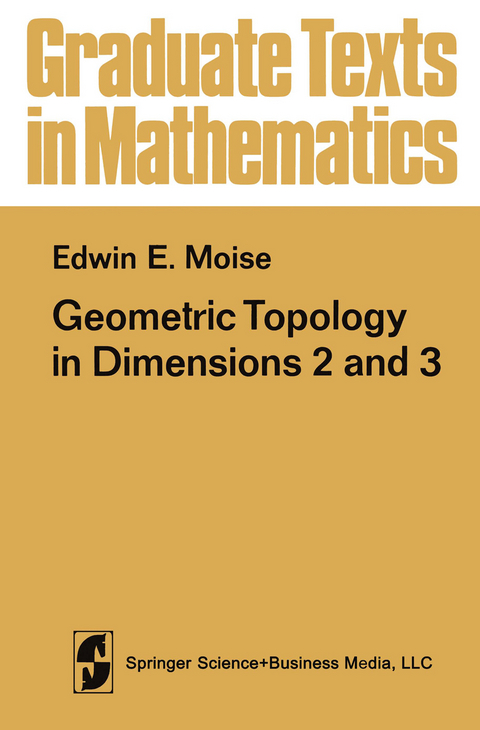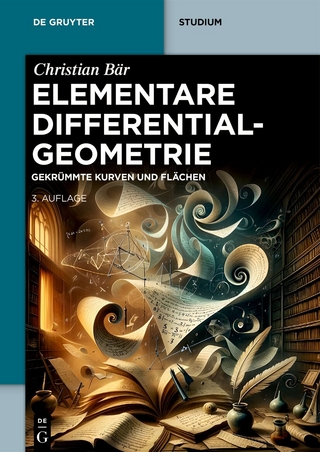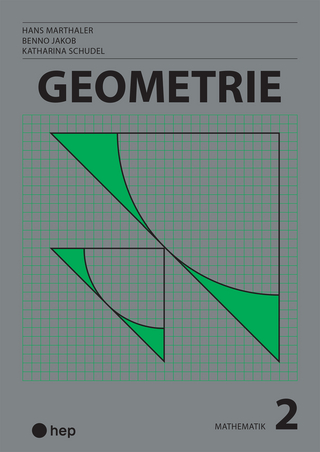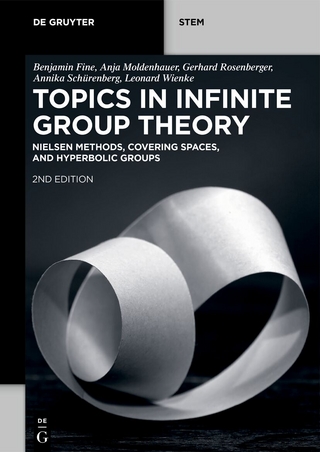
Geometric Topology in Dimensions 2 and 3
Springer-Verlag New York Inc.
978-1-4612-9908-0 (ISBN)
Geometric topology may roughly be described as the branch of the topology of manifolds which deals with questions of the existence of homeomorphisms. Only in fairly recent years has this sort of topology achieved a sufficiently high development to be given a name, but its beginnings are easy to identify. The first classic result was the SchOnflies theorem (1910), which asserts that every 1-sphere in the plane is the boundary of a 2-cell. In the next few decades, the most notable affirmative results were the "Schonflies theorem" for polyhedral 2-spheres in space, proved by J. W. Alexander [Ad, and the triangulation theorem for 2-manifolds, proved by T. Rad6 [Rd. But the most striking results of the 1920s were negative. In 1921 Louis Antoine [A ] published an extraordinary paper in which he 4 showed that a variety of plausible conjectures in the topology of 3-space were false. Thus, a (topological) Cantor set in 3-space need not have a simply connected complement; therefore a Cantor set can be imbedded in 3-space in at least two essentially different ways; a topological 2-sphere in 3-space need not be the boundary of a 3-cell; given two disjoint 2-spheres in 3-space, there is not necessarily any third 2-sphere which separates them from one another in 3-space; and so on and on. The well-known "horned sphere" of Alexander [A ] appeared soon thereafter.
0 Introduction.- 1 Connectivity.- 2 Separation properties of polygons in R2.- 3 The Schönflies theorem for polygons in R2.- 4 The Jordan curve theorem.- 5 Piecewise linear homeomorphisms.- 6 PL approximations of homeomorphisms.- 7 Abstract complexes and PL complexes.- 8 The triangulation theorem for 2-manifolds.- 9 The Schönflies theorem.- 10 Tame imbedding in R2.- 11 Isotopies.- 12 Homeomorphisms between Cantor sets.- 13 Totally disconnected compact sets in R2.- 14 The fundamental group (summary).- 15 The group of (the complement of) a link.- 16 Computations of fundamental groups.- 17 The PL Schönflies theorem in R3.- 18 The Antoine set.- 19 A wild arc with a simply connected complement.- 20 A wild 2-sphere with a simply connected complement.- 21 The Euler characteristic.- 22 The classification of compact connected 2-manifolds.- 23 Triangulated 3-manifolds.- 24 Covering spaces.- 25 The Stallings proof of the loop theorem of Papakyriakopoulos.- 26 Bicollar neighborhoods; an extension of the loop theorem.- 27 The Dehn lemma.- 28 Polygons in the boundary of a combinatorial solid torus.- 29 Limits on the loop theorem: Stallings’s example.- 30 Polyhedral interpolation theorems.- 31 Canonical configurations.- 32 Handle decompositions of tubes.- 33 PLH approximations of homeomorphisms, for regular neighborhoods of linear graphs in R3.- 34 PLH approximations of homeomorphisms, for polyhedral 3-cells.- 35 The Triangulation theorem.- 36 The Haupt?ermutung; tame imbedding.
| Reihe/Serie | Graduate Texts in Mathematics ; 47 |
|---|---|
| Zusatzinfo | X, 262 p. |
| Verlagsort | New York, NY |
| Sprache | englisch |
| Maße | 155 x 235 mm |
| Themenwelt | Mathematik / Informatik ► Mathematik ► Geometrie / Topologie |
| Schlagworte | Topology |
| ISBN-10 | 1-4612-9908-X / 146129908X |
| ISBN-13 | 978-1-4612-9908-0 / 9781461299080 |
| Zustand | Neuware |
| Haben Sie eine Frage zum Produkt? |
aus dem Bereich


